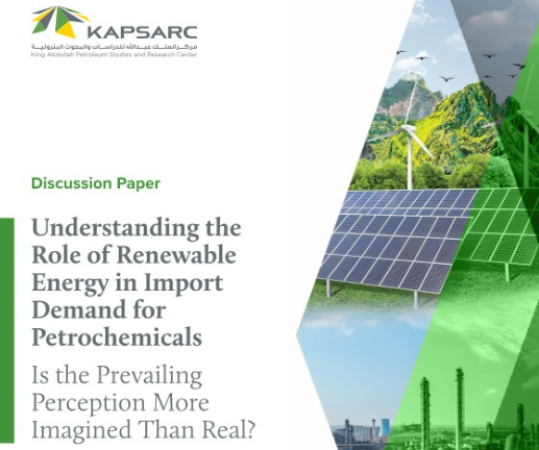
Follow India Renewable Energy News on WhatsApp for exclusive updates on clean energy news and insights
Renewable Energy: A Surprising Boost for Petrochemical Demand?
Mar 24, 2025
Could the global shift to renewable energy be reshaping hydrocarbon demand rather than reducing it? A new study by the King Abdullah Petroleum Studies and Research Center (KAPSARC) challenges the long-held view that renewables would curb the need for hydrocarbons and petrochemicals, suggesting instead that their rise might actually fuel demand for these materials.
A Shift in Perspective
Conventional wisdom positioned renewable energy as a rival to hydrocarbons, cutting reliance on fossil fuels for heating, cooling, and transport. However, KAPSARC’s research reveals an unexpected twist: the expansion of solar panels, wind turbines, and other green technologies is driving up the need for petrochemical products like plastics, resins, and polymers—key components in renewable infrastructure.
Key Findings
Drawing on data from seven developing economies between 1996 and 2022, the study shows that renewable energy growth spurs petrochemical import demand. Looking ahead, it projects that by 2050, global demand for petrochemical polymers tied to renewable energy systems could hit 223 million metric tons. This translates to a crude oil equivalent of up to 1.13 million barrels per day—a significant figure that underscores the intertwined fates of renewables and hydrocarbons.
Why It Matters
The surge is largely driven by the materials underpinning renewable technologies. Ethylene, polyurethane, and other petrochemical derivatives are essential for producing durable solar panels and wind turbine blades. As nations like China and India ramp up renewable capacity, this demand is set to grow, potentially redefining hydrocarbons’ role in a low-carbon world.
Opportunities and Challenges
This trend presents a paradox: while renewables aim to slash emissions, their production relies on carbon-heavy materials. For policymakers, the implications are twofold:
- Importing Nations: Brace for increased petrochemical imports to support renewable manufacturing.
- Exporting Nations: Seize the chance to boost petrochemical output and supply critical feedstocks for the green transition.
Looking Ahead
The KAPSARC findings suggest that rather than phasing out hydrocarbons, the energy transition might reposition them as vital enablers of renewable growth. As the world races toward net-zero, this dynamic could reshape energy strategies and trade flows, blending sustainability with an enduring reliance on petrochemical innovation.